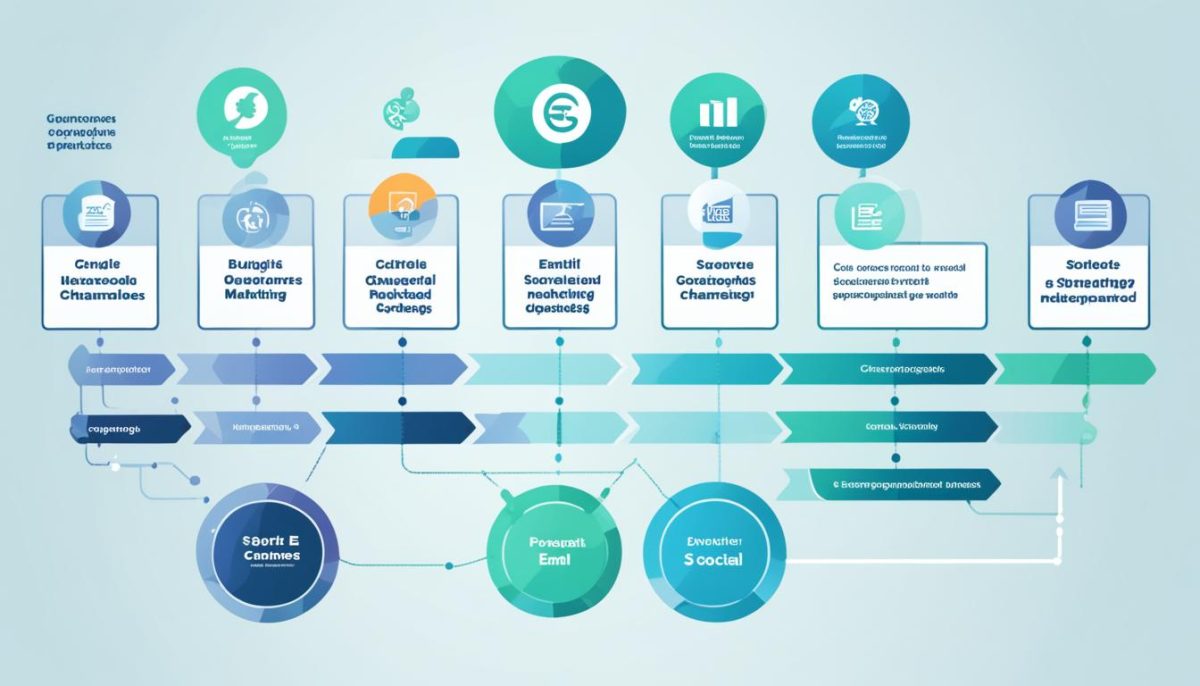Welcome to our blog series on digital marketing! In today’s article, we will explore the importance of having a budget in your digital marketing strategy and how it can help you steer clear of common pitfalls. Whether you are a small business or a large corporation, budgeting plays a crucial role in ensuring the success of your online marketing efforts.
When it comes to digital marketing, there are countless opportunities and platforms to explore. However, without a clear budget in place, it’s easy to get lost in the sea of possibilities and fall into traps that can drain your resources and hinder your progress.
By implementing a budget for your digital marketing initiatives, you gain greater control and visibility over your spending. This allows you to allocate your resources effectively, ensuring that every dollar is spent wisely and in line with your overall marketing objectives.
Not only does having a budget help you streamline your marketing efforts, but it also enables you to optimize your spending for better returns on investment (ROI). With a well-planned budget, you can identify which channels and strategies are bringing in the most revenue and adjust your allocations accordingly.
Moreover, budgeting fosters focus and accountability in your marketing campaigns. It prompts you to set clear objectives and milestones, ensuring that you stay on track and maintain a laser-like focus on your goals. Additionally, it encourages better decision-making by forcing you to evaluate the potential return on investment for every marketing opportunity.
So, whether you’re new to digital marketing or looking to improve your current strategies, having a budget is key to avoiding the traps and pitfalls that can lead to wasted resources and ineffective campaigns. Stay tuned as we dive deeper into the benefits of budget digital marketing and share practical tips and strategies for success!
The Benefits of Budget Digital Marketing
Implementing a budget in your digital marketing strategy can bring about numerous advantages for your business. By allocating resources effectively and setting clear spending limits, you can optimize your marketing efforts and achieve a better return on investment (ROI).
One of the key benefits of budgeting is the ability to streamline your marketing efforts. With a defined budget, you can prioritize your marketing channels, focusing on the ones that provide the most value and align with your business goals. This targeted approach allows you to reach your intended audience more effectively and generate higher-quality leads.
Moreover, budgeting in digital marketing fosters accountability and better decision-making. When you have a budget in place, you are compelled to track your expenses and measure the success of your campaigns. This level of visibility enables you to make data-driven decisions, identify areas for improvement, and adapt your strategies accordingly.
Additionally, having a budget helps optimize your spending. With a finite amount of resources, you are encouraged to find cost-effective solutions and explore alternative marketing tactics. By carefully evaluating your expenditure, you can eliminate ineffective campaigns and invest in initiatives that yield the best results. This approach leads to a more efficient use of your marketing budget and maximizes the impact of your efforts.

“Budgeting in digital marketing fosters focus, accountability, and better decision-making in marketing campaigns.”
In conclusion, budget digital marketing offers numerous benefits that can greatly enhance the success of your campaigns. Streamlining your efforts, optimizing spending, and fostering accountability are just a few advantages that can ultimately lead to a higher ROI. By implementing effective budget planning, you can ensure that your business maximizes its resources and achieves its marketing goals efficiently.
Navigating Digital Marketing Traps with a Budget
While digital marketing offers numerous opportunities for businesses to grow and succeed, it also presents several challenges that can hinder progress and drain resources. Navigating these traps requires a well-planned budget that enables businesses to allocate their resources effectively and strategically.
The Traps to Avoid
One of the common traps businesses face in digital marketing is overspending without achieving the desired results. Without a budget in place, it’s easy to get carried away by the multitude of advertising options and spend more than necessary. Ineffective targeting is another pitfall that businesses may encounter. Failing to narrow down their audience and be specific in their messaging can lead to wasted efforts and poor conversion rates. Additionally, poor tracking and measurement of campaign performance can make it difficult to optimize strategies and maximize return on investment.
Mitigating Risks with a Budget
Having a budget for digital marketing allows businesses to mitigate the risks associated with overspending, ineffective targeting, and poor tracking. By setting clear objectives, businesses can allocate their budget towards the channels and tactics that align with their goals. Conducting thorough market research helps identify the most valuable audience segments and create targeted campaigns that generate higher engagement and conversions. Regularly monitoring and adjusting the budget based on key performance indicators ensures optimal performance and the ability to adapt to changing market dynamics.
Additionally, a well-defined budget provides businesses with the discipline and structure needed to make informed decisions. It fosters accountability and ensures that resources are allocated efficiently, preventing wasteful spending. Moreover, a budget allows businesses to prioritize their marketing initiatives, focusing on the strategies that are most likely to yield positive results.
Strategies for Successful Budget Digital Marketing
When it comes to digital marketing, having a well-defined budget is crucial for maximizing resources and achieving your marketing goals efficiently. Here are some practical strategies to help you make the most out of your limited resources:
1. Prioritize Marketing Channels: Instead of spreading your budget thinly across multiple channels, focus on the platforms that align with your target audience and business objectives. Research your audience demographics and preferences to identify the channels that will yield the best results.
2. Optimize Ad Spending: Regularly review and optimize your ad campaigns to maximize your ad spend. Test different ad formats, targeting options, and messaging to identify the strategies that deliver the highest return on investment (ROI). Consider leveraging automation tools to streamline and fine-tune your ad optimization process.
3. Leverage Data Analytics: Use data analytics to gain valuable insights into your target audience’s behavior and preferences. Analyze key metrics such as click-through rates, conversion rates, and customer lifetime value to refine your marketing strategies. This data-driven approach will help you allocate your budget more effectively and optimize your campaigns for better results.
4. Explore Cost-Effective Alternatives: In addition to traditional paid advertising, explore cost-effective alternatives such as content marketing, social media engagement, and influencer partnerships. These strategies can often generate organic growth and brand exposure at a fraction of the cost of paid advertising. Consider collaborating with industry influencers or creating valuable content that resonates with your target audience.
By implementing these strategies, you can navigate the challenges of budget digital marketing and achieve effective results without breaking the bank. Remember to regularly reassess and adjust your budgeting strategies as market conditions and consumer behavior evolve.

